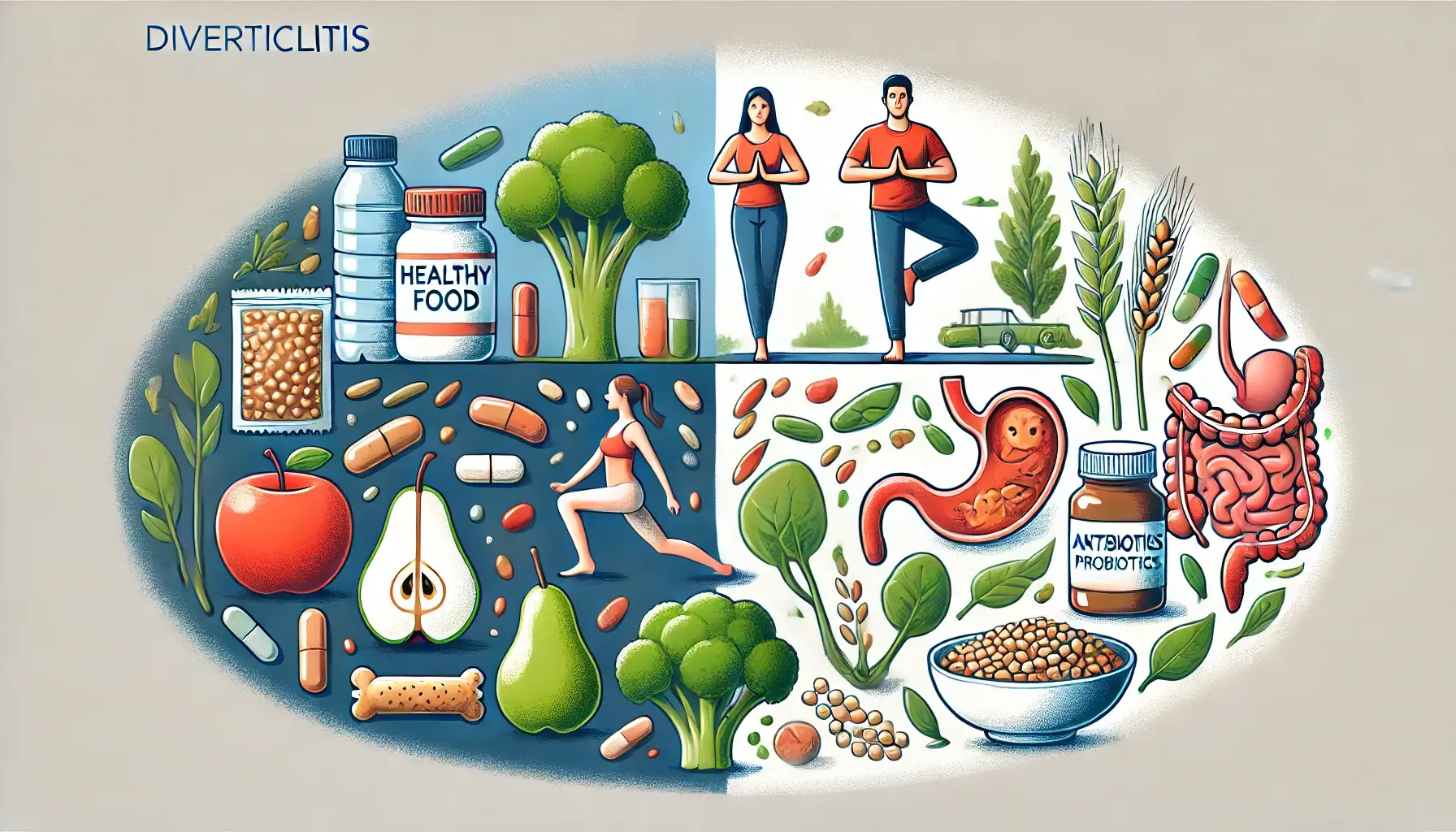Understanding Diverticulitis and Its Impact
Diverticulitis, a condition that arises from inflammation or infection of small pouches, called diverticula, in the colon, is a significant concern for many, particularly as they age. Often linked to dietary habits and lifestyle choices, diverticulitis can range from mild discomfort to severe complications, including abscesses, perforation, or obstruction of the colon.
Age Demographics and Symptom Recognition
While diverticulitis primarily affects individuals over 40, its prevalence among younger adults is increasing, likely due to modern dietary patterns and sedentary lifestyles. The condition is often misunderstood, leading to delayed interventions and exacerbated symptoms. Key symptoms include persistent abdominal pain in the lower left abdomen, fever, nausea, and changes in bowel habits such as diarrhea or constipation. Recognizing these signs early and adopting a proactive approach to management can significantly improve outcomes.
Introduction to Management Approaches
Understanding the factors contributing to diverticulitis and implementing effective management strategies is critical. This article provides an in-depth exploration of how dietary changes, lifestyle adjustments, and therapeutic interventions can help individuals manage their condition, reduce flare-ups, and improve overall quality of life.
Overview of Management Strategies
Managing diverticulitis involves a multifaceted approach encompassing diet, lifestyle, and medical interventions. Research underscores the importance of these strategies in mitigating symptoms and preventing recurrence.
Dietary Modifications for Digestive Health
While a low-fiber diet is typically recommended during acute flare-ups, transitioning to a high-fiber diet afterward is crucial for prevention. Dietary fiber softens stools, reducing pressure on the colon walls. Studies have demonstrated that increasing fiber intake lowers the risk of diverticulitis recurrence by promoting regular bowel movements and reducing inflammation.
Essential Fiber-Rich Foods
Foods rich in fiber include:
Fruits: Apples, pears, and berries.
Vegetables: Broccoli, spinach, and carrots.
Whole Grains: Brown rice, quinoa, and whole wheat bread.
Importance of Hydration
Adequate fluid intake is vital when increasing dietary fiber to avoid constipation. Aim for at least 2-3 liters of water daily to ensure smooth digestion and prevent straining during bowel movements.
Protein Choices and Impact
Recent studies have linked high consumption of red meat with increased risk of diverticulitis flare-ups. Replacing red meat with lean proteins like fish, poultry, or plant-based sources such as lentils and chickpeas can lower inflammation and support gut health.
Lifestyle Changes for Well-being
Exercise plays a pivotal role in digestive health by improving bowel motility and reducing the risk of constipation, a significant trigger for diverticulitis. A 2020 study in Gut Health Journal revealed that engaging in moderate exercise, such as 30 minutes of walking daily, reduced diverticulitis recurrence by 30%.
Mental Health and Digestive Connection
Chronic stress disrupts the gut-brain axis, exacerbating symptoms of diverticulitis. Incorporating stress-reduction techniques like yoga, mindfulness meditation, or deep breathing exercises can enhance overall digestive health.
Impact of Smoking
Smoking weakens the colon’s lining and increases inflammation. Quitting smoking reduces the risk of flare-ups and significantly improves overall health.
Medical Treatment Approaches
Acute diverticulitis flare-ups often require a combination of:
Antibiotics to address infection.
Pain relievers for discomfort.
A temporary liquid or low-fiber diet to allow the colon to heal.
Role of Probiotics
Probiotics have gained attention for their role in maintaining gut microbiota balance. A review published in World Journal of Gastroenterology suggests that probiotics may reduce inflammation and prevent recurrent episodes of diverticulitis.
Final Thoughts on Management
Living with diverticulitis demands a proactive and personalized approach. Incorporating dietary changes, adopting a physically active lifestyle, and managing stress can significantly reduce the risk of flare-ups and enhance overall health. Collaboration with healthcare professionals is essential for crafting an effective management plan tailored to individual needs.
Looking Forward
By embracing these strategies and staying informed about the latest research, individuals can not only manage diverticulitis but also foster long-term digestive health and well-being.
Research Citations
References
Strattford, E. M., et al. (2016). Dietary fibre for diverticular disease. The Cochrane Database of Systematic Reviews, 11, CD011411.
Chan, A. T., et al. (2019). Red meat consumption and risk of diverticulitis: A prospective cohort study. Gut, 68(5), 796-802.
World Journal of Gastroenterology. (2020). The role of probiotics in diverticular disease. World J Gastroenterol, 26(25), 3648-3658.
